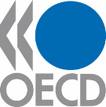Europe may also need massive rescue plan, OECD head says
 Strasbourg - Despite assurances by European leaders that their finance systems were stable, Europe may still need a massive rescue plan similar to the 700-billion dollar measure being voted on by the US Congress, OECD head Angel Gurria said Wednesday.
Strasbourg - Despite assurances by European leaders that their finance systems were stable, Europe may still need a massive rescue plan similar to the 700-billion dollar measure being voted on by the US Congress, OECD head Angel Gurria said Wednesday.
Speaking as he presented the annual report to the Parliamentary Assembly of the Council of Europe on the outlook for the world economy, Gurria said, "We have already seen the first troubled European banks being rescued in the United Kingdom, Belgium, the Netherlands and Germany.
"Considering the exposure of European financial institutions, we might have to start thinking of a systemic plan for Europe if things don't improve on the other side of the Atlantic. The piecemeal approach may not work in Europe either."
So far, European countries have reacted to troubled financial institutions with case-by-case, rather than systemic, measures, such as the government bail-outs of the Belgian bank Fortis and the French-Belgian financial group Dexia.
In addition, the European Central Bank has continued injecting funds into money markets so that lending does not decline even as credit dries up.
The Paris-based International Herald Tribune reported on Wednesday that banks have sharply increased their lending rates on short-term loans, sending Libor - a daily reference rate based on the interest rates at which banks offer to lend unsecured funds to other banks in the London wholesale money market - to its highest level ever.
Gurria said that major economies face several quarters of weak growth as a result of the worldwide slowdown and the current financial crisis, with G7 economies set to grow by a mere 1.4 per cent in 2008, against 2.2 per cent last year.
"We are facing the worst financial crisis since the Great Depression and its consequences are already spreading beyond the financial sphere, throughout the globe," he said.
"The financial system is a conveyor belt through which the economy works. And if the financial system is partially blocked or paralysed, as it is now, then the economy cannot work normally." (dpa)